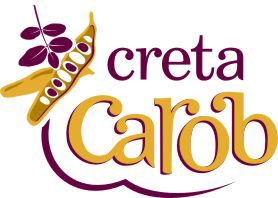
Creta Carob was established in 2006 and started its operations in 2011. It is a family company that main focus is the production of different biological products from the Carob Pods. Creta Carob is located in Crete Island in a little village called Argyroupoli. During our production process we combine ancient procedures with new technologies. Our final products correspond to the regulations of the E.U. and received the bio qualification in Greece and in the E.U. from DIO.
Resources
In Crete, the carob trees thrive in difficult soils and like arid conditions that are naturally free of fungus and pests. Thus, the uses of chemical sprays are not necessary on Crete Island. The tree grows 15 m in 50 years. It does not bear fruit for the first 15 years. However, once fruiting, it will yield one ton of beans in one harvest. Carob pods are harvested in the middle of September. The growing carob pods look like green broad beans but they turn to a dark glossy brown as they age. Each pod can contain up to 15 seeds.
History
Carob has a long history in human consumption. The Greek Theophrastus recorded in 4BC that his fellow Greeks called the carob the Egyptian Fig. There is also evidence that Ancient Egyptians used carob. Both the pods and seeds have been found in Egyptian Tombs. Further, the Romans ate the Carob pods when they were green and fresh for their natural sweetness. Thus, Carob is no newly discovered food. As the founder of Creta Carob, Elias Manousakas states "It is the lost treasure of Crete''.
Cretan Carob
Carob is up to 8% protein. It contains Vitamins A, B, B2, B3 and D. It is high in Calcium, phosphorus, pottasium, Magnesium and contains Iron Manganese, Barium, Copper and Nickel.